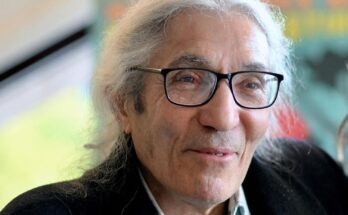“Thirty years of existence cannot be sustained without a network of collaborators, especially with a sick leader.” The accusations in the trial against the sect that operated for three decades in the La Chaparra de Vistabella farmhouse (Castellón) are based on this, to demonstrate that the six defendants were key figures for the longevity of the group. Even in the materialization of esoteric rites and sexual practices for healing purposes, committed, even against minors, with which the spiritual guide -Antonio, Uncle Toni-, who died in prison two months after his arrest, in 2022, subjugated dozens of followers. During this time, he created an indestructible community hidden beneath the routine of seemingly normal home and community life and coexistence.
The macro trial against the Vistabella sex sect faces the last phase of the round of testimonies. More than fifty will have gone through ten of the 15 sessions. A total of 18, if we add those dedicated to reading reports and conclusions. Their voices painted two completely antagonistic scenarios of what life was like in La Chaparra before the court of the Provincial Court of Castellón.
On the one hand, the hell of sexual abuse and coercion described by former followers and victims. They reported having been sexually abused by the leader when they were teenagers, among other things to “cure” their ovaries: “He said he had black ones,” said one of the young complainants. These testimonies involved the defendants assuring that they had facilitated the entry of minors into the leader’s room, the scene of the alleged abuse, and even that they had witnessed some sexual rituals.
On the other hand, the “idyllic” scenario, free, democratic and devoid of any type of sexual practice provided by the defense witnesses, clinging to the figure of the leader, perceived by them as a “special being” and without power of command. “There we decided together,” they said. They denied or said they did not remember the aforementioned sexual practices. With the exception of one of the last to testify, the father of one of the accused, Antonio’s daughter-in-law, who acknowledged the abuses he committed to excuse his daughter, claiming that she too was a victim of the sexual therapies practiced by the guru.
After these fifty testimonies, it will be the experts’ turn (26 and 27 November). The Prosecutor’s Office is asking for 16 to 76 years in prison for the six defendants – five of whom are women, including the leader’s wife and daughter-in-law – for their alleged involvement in nine ongoing sexual abuse crimes, six of which involved minors. They will declare from December 1st to 3rd.
“The most surprising thing (in the case of the Vistabella sect) is its validity, its size. That such a sectarian situation can be maintained for 30 years, a coercive group like this; with so many people, even with children born in the community and living together in a physical space”, underlines one of the lawyers of the private prosecutor’s office, who has participated in other judicial processes related to sects or similar. It did so in the case of the false homeopath from Sabadell, who established a sectarian regime in his natural therapy center and was sentenced by final sentence to 23 years in prison. And he is an accomplice to the prosecution against the leaders of the Pobla de Lillet sect – the Prosecutor’s Office is asking for 70 years in prison for the leader for raping five women – and against the Vielha sect.
“None had anywhere near the validity of the La Chaparra sect. None, beyond organized spiritual retreats, had been governed by a similar model of coexistence. Of the cases of cults with criminal behavior that I have dealt with, this one is unique,” he indicates. Hence, he says, “the key to co-authorship: it is impossible for a situation of this type to have been maintained for 30 years by a single person who, moreover, had rather significant physical limitations. It is impossible without the help of the necessary collaborators, who are those sitting there”, indicates the lawyer. “Toni was in command, but it is clear that under him there was a hierarchy, a group that helped carry out all the activities that took place there for 30 years,” the accusations insist.
Three decades of history
1990. In a building in Castellón Antonio founded a center for spiritual healing therapies. His wife, one of the defendants, attended and organized the appointments, according to the Prosecutor’s Office. Already then, from word of mouth, a solid network began to emerge to broaden contacts. Many of the witnesses who testified at the trial claim that they came to Antonio through acquaintances. They ratified to future followers the healing power of the leader, capable of solving their emotional or health problems with a simple laying on of hands.
The number of followers grew exponentially and the Castellón office became too small. “There was no space to perform their rituals,” says the Public Prosecutor’s Office, so the group moved its business, in 1994, to another property in an urbanization in the María Cristina basin, in the municipality of Alcora, in Castellón. Here began the economic contributions, in the form of donations, from numerous followers, who settled there. And here was born, on a small scale, the sectarian project that will be planned and consolidated shortly afterwards in La Chaparra. A farm with more than 700 square meters of housing where the community leaders, with their acolytes and families, moved. Several children of the sect were born in the farmhouse.
La Chaparra was built with the contribution of his followers, shareholders of a community that promoted self-management businesses – from an artisan company to a carpentry shop or one of the bakeries in the municipality of Vistabella – while its leader, according to the Prosecutor’s Office, dedicated himself to painting and a more contemplative life. Two of the witnesses, a mother captured after being widowed and her son, spent €300,000 buying properties, cars and starting businesses to finance the sect. The children of La Chaparra went to school in Vistabella and to high schools in nearby towns. The community mingled with neighbors in a town unaware of what was happening behind closed doors. Just eight kilometers from their homes. It was, in everyone’s eyes, a self-managed community with its own livestock and crops, frequenting local businesses to make other purchases. Internally, the leader implemented separation of duties by gender. Women were entrusted with household chores and men with maintenance and construction. Those who work outside contribute with their own salary.
The size of the sect led by Uncle Toni, beyond the number of followers – up to 40 people lived together permanently or temporarily – is reflected in the very size of La Chaparra. The officers involved in the operation that dismantled the group in March 2022 explained that two searches were necessary given the size of the property.
The death in prison of the leader, suffering from serious respiratory and motor problems due to polio, in May of that same year, left those who were part of that “second echelon” within the hierarchy established by Uncle Toni alone in the dock. People whom the accusers see as necessary collaborators in the commission of the crimes of which they are accused. And that the defences, through the testimonies provided and in cases such as that of the leader’s daughter-in-law, try to remove their status as executioners and show them as victims.



